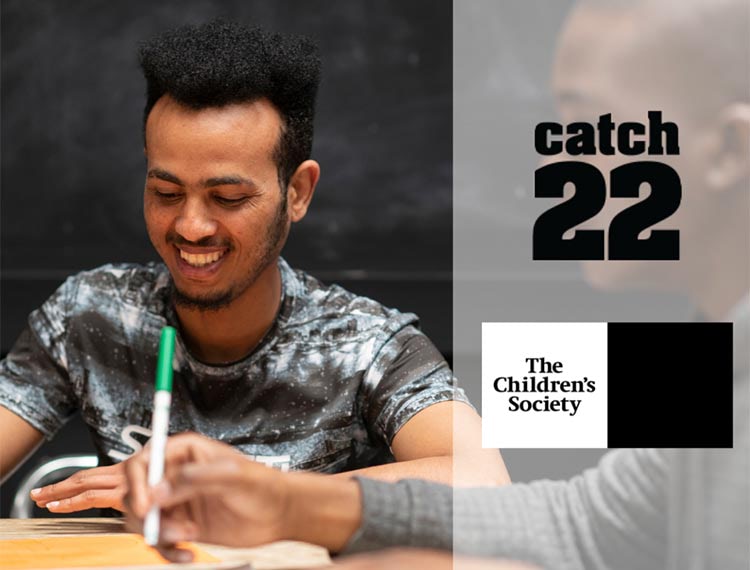Young care leavers are missing out on #apprenticeship opportunities

LEADING CHARITIES DEMAND BETTER SUPPORT FOR #CARELEAVERS TO ENTER EMPLOYMENT #ECLCM
Young care leavers are missing out on apprenticeship opportunities as experts warned they are not receiving adequate support to transition into sustainable careers.
The Children’s Society and Catch 22 are calling for more changes to the apprenticeship levy to encourage this underserved group into work and help care leavers see apprenticeships as a financially viable opportunity.
The latest Department for Education figures show 39 per cent of care leavers aged 19-21 are not in employment, education or training, compared to 12 per cent of those in the same age group.
At the launch event yesterday the charities launched their new Bright Light programme.
The pilot, funded by The Clothworkers’ Foundation, will offer holistic and tailored support to London’s young care leavers to help them into apprenticeships, employment or further education.
Emma Allix, Catch22’s Programme Manager for Bright Light, says:
“It is vital that employers are understanding of the personal barriers these young people face, and that they offer effective long-term support. We all have a responsibility to be better corporate parents to care leavers, and with the additional help with transport costs, training, or just improving access, we can change these young peoples’ lives. By offering this support to these young people, employers will see loyal, motivated employees, likely to build a long-term career with their organisation.
“We want those who contribute to the apprenticeship levy to dedicate half their expenditure to those under 30. It is equally important that employers are supported and encouraged to take on apprentices too.”
Peter Grigg, External Affairs Director at The Children’s Society, adds:
“We know through our work that care leavers face a myriad of issues when looking to their future. They have not had the parental guidance needed to navigate the world of job hunting nor will they have the financial backing to take up an apprenticeship that pays just £3.30 per hour. This low wage is simply not enough to live on. That is why we are calling on the first year apprenticeship rate to be brought in line with under 18 minimum wage. This additional money would remove some of the financial barriers and hopefully reduce the disproportionate number of care leavers not in education, employment or training.”
Bright Light will enable care leavers to achieve the best possible outcomes when transitioning from care into adulthood and employment. The course will provide one to one support for up to 18 months. Career coaches will help each individual build their confidence, to understand employer expectations, interview techniques, budgeting, the importance of time management and more.
Loveth Benson, a 22 year old from East London, is one of Bright Light’s first participants. Loveth is currently at university but was signposted to the course because of the struggles she has faced in trying to find a job.
Loveth explained:
“I was in care at 15 and lived with foster families, then at 17 I was living in semi-supported housing, which was quite regulated, so I wasn’t allowed to get a part-time job. When I could get a job, I didn’t know what to put on my CV, or how to even do one. I didn’t know how to write a personal statement or a cover letter, and there was no one to ask for help… no parents. This course is helping me to find out more about these things.”
Loveth hopes being part of Bright Light will help her achieve her dream career:
“I really want to be a social worker. Being in care, I met lots of young people with different issues and backgrounds, but all of them had no one they could ask for help… I want to be able to help them. I have only just started the course but we have already looked at jobs that can help me achieve my goals.”
£19 million vital support for care leavers announced: #ECLCM – Multi-million pound settlement and cross-Government action announced to help young #CareLeavers £10 million to create stable homes for care leavers as they become adults £6 million to support… https://t.co/BvlGvJUsVI pic.twitter.com/xsDRWry4J8
— FE News (@FENews) October 22, 2019
Bright Light is a pilot programme with the main aim of progressing care leavers into apprenticeships and understanding the barriers associated with this, helping to develop solutions, share learnings and to influence national policy.
Few projects focus on this difficult point of transition – when young people leave the care system – to offer full wraparound support, stretching across their immediate needs, mental and emotional needs and their route into employment. This project will explore what more is needed to support care leavers into independence which includes career opportunities, including progression into apprenticeships, employment, education and training – and the systemic barriers that impact on this. Breaking down these barriers, real and perceived, that care leavers face in securing apprenticeships will help improve the current numbers falling behind their peers in terms of securing these opportunities.












Responses